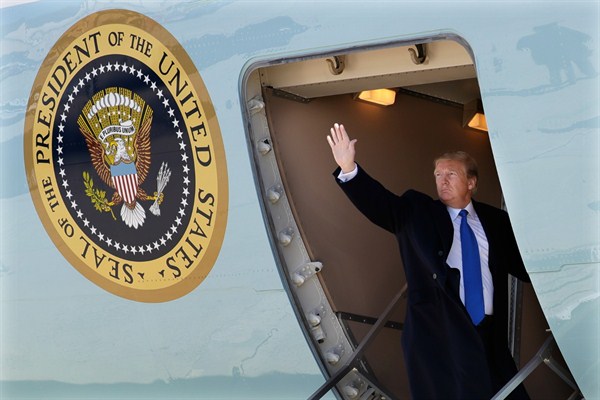One of the unforeseen beneficial outcomes of the Trump era is the fertile debate it has fueled over America’s foreign policy and global role. As a candidate, Donald Trump questioned many of the pillars of U.S. foreign policy. As president, he has run roughshod over America’s core partnerships and values, to say nothing of the diplomatic protocols he has trampled in the process.
After an initial period of shock and outrage, the foreign policy establishment has more recently seemed to recognize the opportunity such a moment offers. In addition to triggering a re-examination of many of the core assumptions of the post-Cold War bipartisan foreign policy consensus, it has widened the range of potential alternatives under consideration. The resulting discussion is not only healthy, it is also emerging in time to feature prominently in the 2020 presidential election, meaning that the outcome of the voting could provide some clarity to the American public’s preferences.
The most recent contribution to the debate comes from Stephen Wertheim,* who argues that the 2020 contest will feature a clash that will “redefine America’s world role in the 21st century, during the rest of the Trump years and beyond.” This clash, according to Wertheim, pits the “new Cold Warriors” against the “restrainers.” Both sides agree that America’s post-Cold War attempts to reshape the world in its image—whether through trade, diplomacy or the use of military force—have failed. The former argue that in the current international landscape, characterized by geopolitical competition with China and Russia, the U.S. must double down on its global superpower status to contain the rise of these and other revisionist powers. The latter argue that the U.S. can no longer afford to police the world and should instead adopt a policy of shrinking, rather than expanding, its global footprint.

